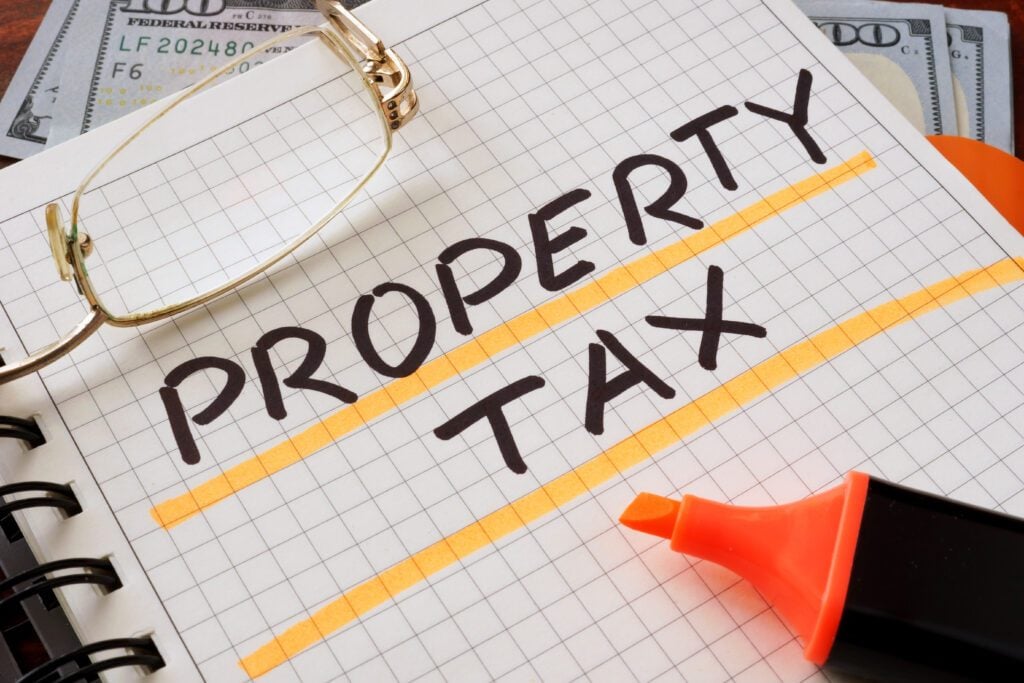Whether you are a long-term homeowner or only recently closed the deal on your first home purchase, don’t be overly thrilled that home values have been skyrocketing for the last couple of years. Spiking home values are a two-sided coin for homeowners. It’s good for your net worth and gives you more equity to borrow against, but higher home values also mean higher property taxes.

Also, the property tax spike that you saw last year and this year might not be the end of the tax increases even if home values level off in the future. Most property tax authorities are capped on how much they can raise taxes in a single year. The most well-known limitation on property tax increases was California’s 1978 Proposition 13, which restricted the rate of increase on assessments to no greater than 2% each year (until a property is sold). So, if property values spike by 14% in a single year, property taxes could continue increasing for 7 years just to catch up with that one-year spike in home values.
If you experienced sticker shock when this year’s property tax bill arrived, the good news is that property taxes can be appealed. The bad news is that there is limited time to file the appeal in almost every county (typically 30 to 90 days). If you think your home’s assessment is higher than it should be, challenge it immediately. According to the National Taxpayers Union, somewhere between 20% and 40% of appeals are successful. Lowering the assessed value not only means a lower tax bill but also lowers the starting point the next time the county assesses the value. The following steps will show you the way to success.
[A word of caution. The assessed value doesn’t have to go down. There is the chance that the new assessment could value your home higher and your property taxes could increase instead of decrease.]
Step 1. The place to start looking is if you qualify for a homestead exemption. For instance, when someone in Florida owns the property and makes it their permanent residence or the permanent residence of their dependent, the property owner may be eligible to receive a homestead exemption that decreases the property’s taxable value by as much as $50,000. Other tax adjustments are available for owners with disabilities, senior citizens, veterans, active-duty military service members, disabled first responders, and properties with specialized uses. You can contact your county property assessor’s office to request applications and guidelines for any adjustments that might apply.
Step 2. Read the assessment information that comes with the bill. Read all of the information about your property, such as lot size or legal description, as well as the assessed value of your house and land. Look for errors in both the legal description and tax calculation. For instance, does the legal description show 3 bathrooms when you only have 2? Was there a decimal error in the math calculation (taxed at 20% when it should be 2%)? If any facts are wrong, then you may have a quick and easy challenge on your hands.
Step 3. Check comparable properties. There are a few ways you can do this. The least expensive way is an internet search to find properties comparable to yours that have recently sold in your immediate neighborhood. The key information you are looking for is a similar age, square footage, and the same number of bedrooms and bathrooms. You can then check with your tax authority on the assessments for those properties. However, there is a drawback to this method. If you are not a real estate professional, you probably won’t know how to make an accurate comparison. For instance, did the comparable properties sell before or after the most recent tax assessment? Also, you don’t know about defects in comparable properties such as a leaky roof.
One way to obtain professional comparisons is by asking a real estate agent for a Broker’s Professional Opinion. These typically cost less than $100. You can also have an appraisal done by a certified appraiser. An appraisal adds the most validity to your property tax appeal, but a certified appraisal can cost between $400 and $600.
Step 4. Organize your evidence. What you want to show the tax assessor is that the assessed value of your home is higher than the assessed value of comparable homes. You want your assessment to be lowered so that it is in line with those of comparable homes. Don’t forget to include any mistakes that were made in the assessment of your home – too many bathrooms or a math mistake.
Step 5. Present your case to the assessor. Remember, you have a limited time to make your appeal. Also, pay attention to the procedure rules. Most assessors are willing to discuss your assessment informally by phone. If not, or if you aren’t satisfied with the explanation, request a formal review. Insist that any changes or decisions are sent to you in writing.
Step 6. Appeal if you’re not satisfied with the review. You can usually appeal the decision to a board that is independent of the assessor, with or without the help of a lawyer. You may have to pay a small filing fee, perhaps $10 to $25. Be sure to bring all of your evidence to the appeal — data on comparable properties, blueprints, photographs, repair estimates, etc. There are rules on how the evidence has to be organized and presented.
Even if you are successful in having this year’s taxes adjusted, look over next year’s bill carefully to be sure this year’s adjustments carry over to next year. Do this every year because some adjustments must be periodically reapplied to show continuing eligibility.
Please leave your comments.
Also, our weekly Ask Brian column welcomes questions from readers of all experience levels with residential real estate. Please email your questions, inquiries, or article ideas to [email protected].